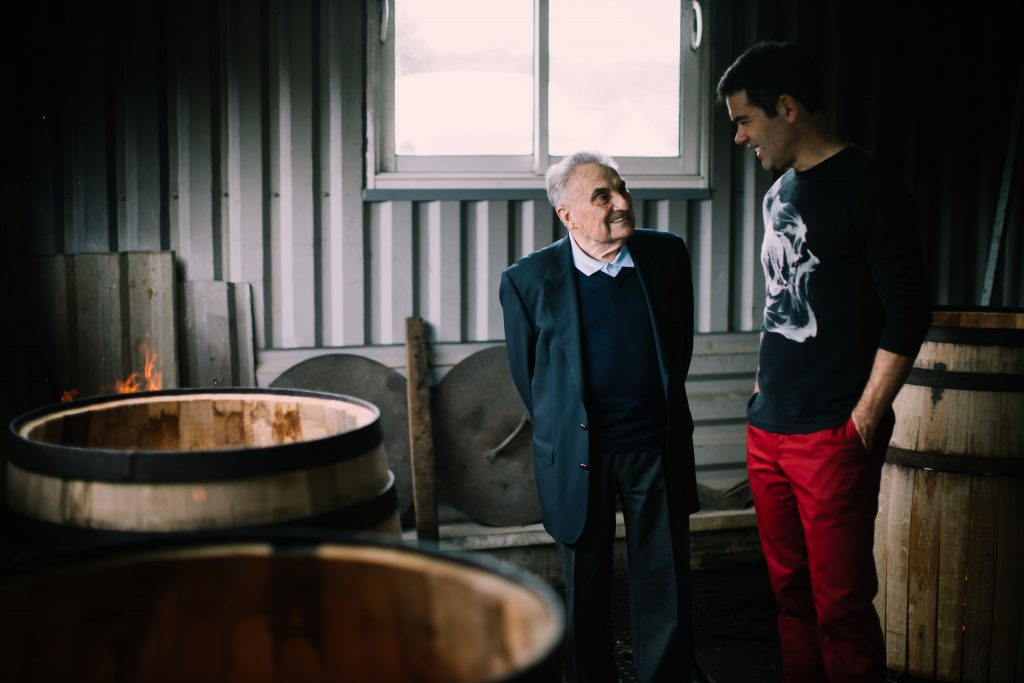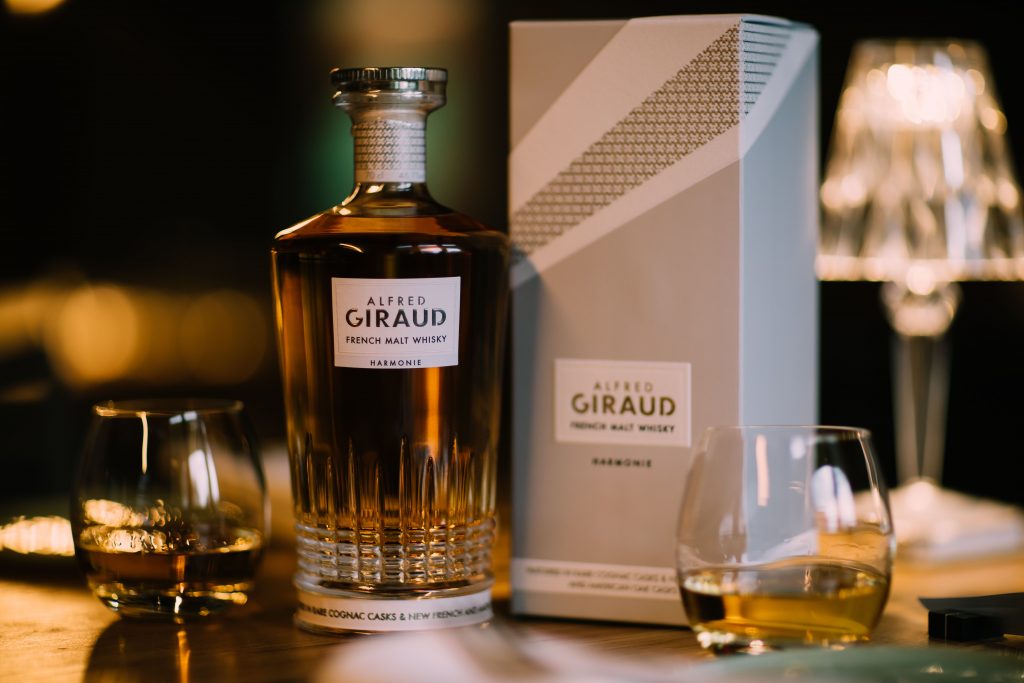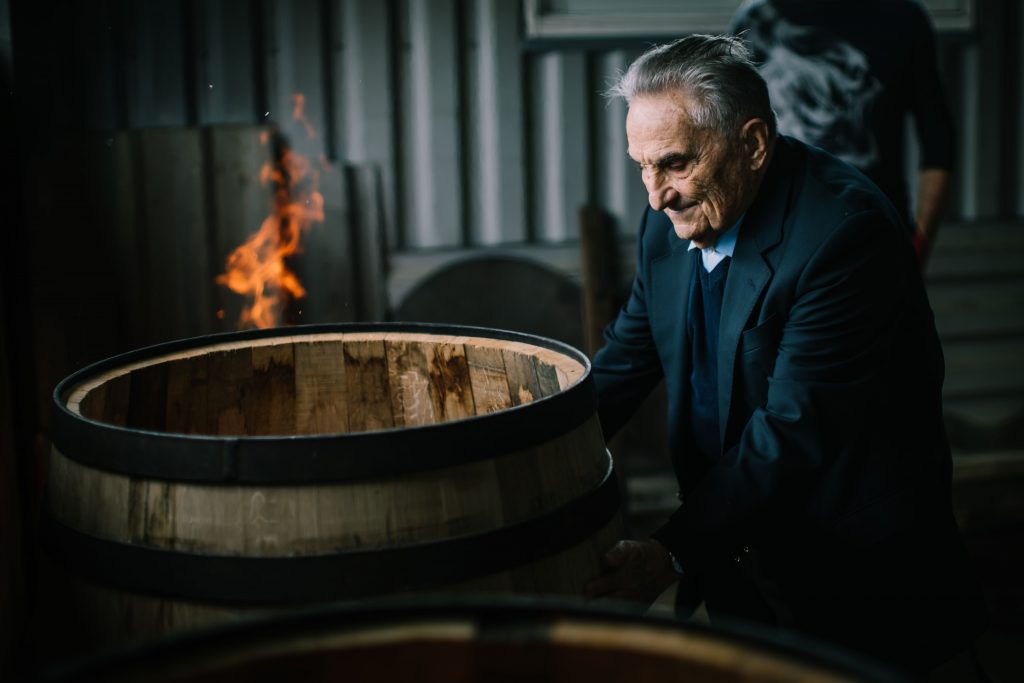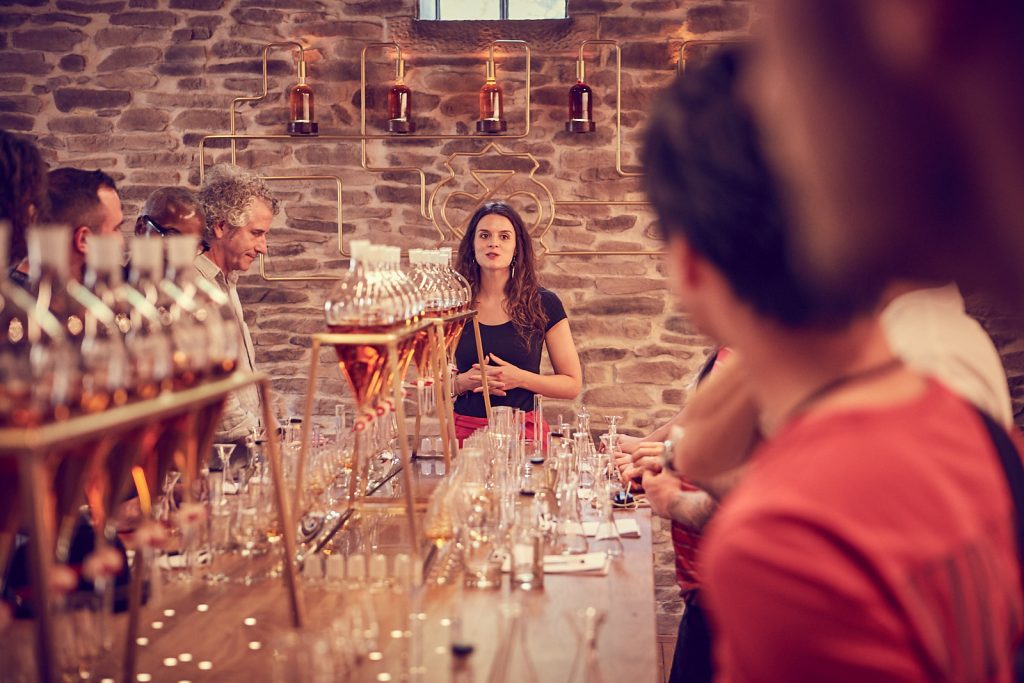The Origins of Alfred Giraud French Malt Whisky
A historic cognac family flexes their expertise for an elegant new tipple

The spirit of Alfred Giraud French Malt Whisky can be pinned to the historical figure with whom it shares a name, an acclaimed cognac cellar master who retired in 1954 (who was also a French solider and prisoner of war during WWI). Though Alfred’s story is a profound one, the quality of the whisky the brand produces is due to the diligence of his great-grandson Philippe Giraud, the brand’s founder. Philippe steered his family from their cognac history into the explosive whisky world. And his patience, commitment to premium components (all of which are French), and an unexpected experimental nature, have led to a portfolio anchored by two refined, award-winning whiskies—Harmonie and Heritage—that will likely please connoisseurs.

“We are indeed a traditional cognac family,” Philippe tells us. “We were coopers [cask makers], for several generations, in the 19th century, until around 1910. Then my great-great-grandfather Louis Giraud joined a small—at that time—cognac house called Rémy Martin. I think there were 20 employees at the time. He knew the gentlemen who acquired it. That family still owns it today, as part of Rémy Cointreau, now a huge multi-national company.”
Over time, Louis transitioned from cooper to cellar master. When he retired, his son Alfred [Philippe’s great-grandfather] adopted the role. Alfred’s son André would become one of the most celebrated cellar master’s in cognac history, steering Rémy Martin until 1990. His son, too, ended up at the company—though as managing director. Philippe also joined, on the legal side. “But after two years, I was hired away by a scotch company, William Grant & Sons,” he says. Working with brands like The Balvenie and Glenfiddich, Philippe fell for whisky.

Almost a decade later, Philippe decided to start his own business, which today distributes wines and spirits through Latin America and the Caribbean. It also distributes cosmetics and perfumes—and even owns luxury store joint-ventures with the likes of Cartier, Hermes and Gucci.
“One way or another, we work with all the big luxury companies in the world, either as a retailer or distributor,” Philippe says. “But in 2012, I sat down with my family and asked, ‘If we work with some of the greatest brands in the world, what can we do for ourselves?’ We realized we needed to create a spirit. We knew it had to be French, that was our expertise. We thought about a cognac, but it was too competitive. We settled on this concept of creating the first luxury French whisky. The category was barely starting to get on the radar of connoisseurs around the world. Back then, nobody cared, nobody knew.”

Philippe approached whisky the way his family historically approached cognac: as something to be blended. “We did not want a single malt. We wanted to buy the best distillate in France, then blend it and age it, in [the city of] Cognac,” he explains. “By 2015, we realized that to secure the quality and quantity of our malt, we needed to make our own malt. That’s when we made a joint venture with a cognac distiller at Distillerie de Saint Palais. We began to develop the whole process from grain to glass for our own glass.”
The brand maintains strict control over every step in the process. They do not own their barley fields, but have exclusive partnerships with growers in France. They acquired 35% of a malting facility in the east of France, built two years ago. All of this ships to Cognac, where they have their own milling and mashing facility. And, of course, as a family of historic coopers, they own a forestry operation in France’s Limousin Forest. It’s run by Philippe’s 95-year-old great uncle, André Giraud and his wife. They prepare their own casks.

Of course, being a young brand, they also buy a small percentage of new make spirit (brand new distillate) but they age and blend it themselves. They also don’t only age in new French oak; in fact, the bulk of wood they use is ex-cognac casks—another family speciality. It’s through their network that they acquire rare cognac casks, which have held liquid for more than 30 (and sometimes 60) years.
“The wet casks contain 12 to 15 liters of this very old cognac soaked into the wood,” Philippe says, “and with time, it seeps back into the whisky. It’s our gourmand touch. We can only do this because we have access, but this is the bottleneck. It’s also a money pit. It’s driven by passion.”

France is a nation of alcohol regulations. These domain recognitions protect products like champagne and cognac. But whisky is still the Wild West. The number of distilleries recently skyrocketed from 20 to 77, with more being built. Further, “The industry is self-regulated by the French Whisky Association, which has established rules. To be called French whisky everything must be produced in France,” Philippe says. He employs two master blenders to oversee their production.
“We have been selling two creations [Harmonie and Heritage] and they are both cognac-cask based, with smooth and elegant flavors,” he says. “One is non-peated, one is slightly peated. But both are in the same refined style.” That isn’t enough for Philippe, however. “We do not want to be labeled as not being able to do anything more than this. We want to push the boundaries of flavor exploration. In fact, we want to explore all the flavors that French wine and spirits casks have to offer.”

Philippe has already been experimenting with red and white wine casks, with different grapes and from different regions. They’ve done trials with Armagnac and Calvados barrels. A lot of it is purely for research but one of these whiskies became the first in their exploratory range. Named Voyage, the astounding liquid is a first, having been aged in a combination of ex-Sauternes barrels and new wood barrels crafted from Robinia, a stubborn sub-family of acacia.
“Not only is it a very tough wood, it’s also hard to manage in large amounts. It’s intense—and the whisky can become bitter quickly. To make Voyage, we tasted the whisky every six weeks to track it.” All of the liquid was then married in cognac barrels. The brand released 427 individually numbered bottles of Voyage. All of them were pre-sold to retailers in France. Although we’re quite found of both spirits in their core range, we had an opportunity to try Voyage, too. And the 96 proof French whisky certainly raised the standard of the French malt whisky category.
Images courtesy of Alfred Giraud French Malt Whisky












